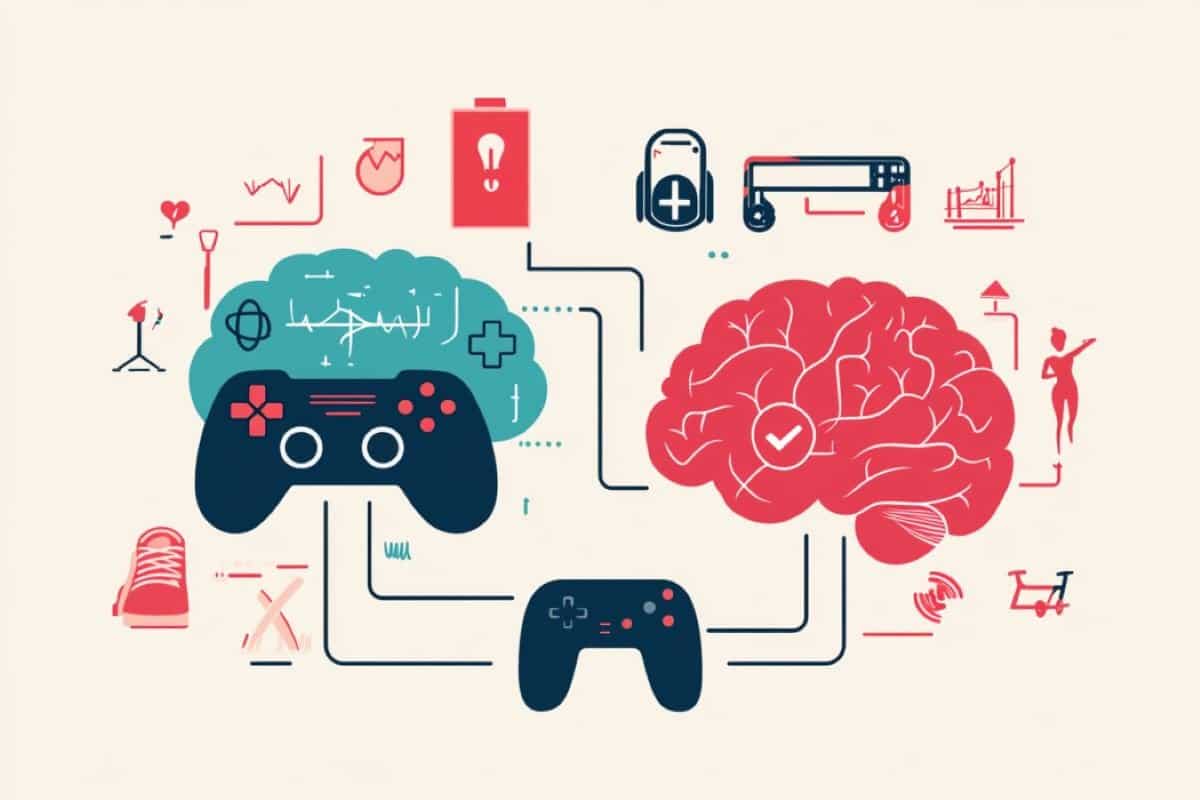The impact of video games on the brain and its cognitive health is a topic that sparks curiosity and debate. Recent research led by Western University in Canada has brought new insights, showing that regular video game play may significantly boost certain cognitive skills without the negative mental health effects often associated with gaming. Here’s how gaming can help you stay sharp—and even feel a bit younger!
Western University’s Groundbreaking Study on Gaming and Brain Health
Western University’s Brain and Body Study, led by renowned neuroscientist Dr. Adrian Owen, explores the relationship between video games and cognitive health. This research analyzed data from over 1,000 global participants, examining how time spent on gaming affects mental abilities. The findings reveal that frequent gamers—those logging five or more hours weekly—performed cognitively like individuals much younger than their age group.
While the study found no mental health benefits from gaming, it did uncover significant cognitive advantages. Dr. Owen and his team used online cognitive tests to measure memory, reasoning, and attention, concluding that these skills were more pronounced in frequent gamers compared to non-gamers.

Enhanced Cognitive Abilities: Memory, Focus, and Problem Solving
A key takeaway from the study is how gaming influences memory and attention. Games require quick thinking, complex problem-solving, and maintaining attention over long periods—skills that the study found to improve with frequent gaming. Tasks in many popular video games, such as puzzles and strategy planning, engage brain regions responsible for memory retention and focused attention.
In fact, frequent gamers demonstrated performance levels akin to people 13.7 years younger on average. This cognitive edge is especially beneficial as we age, offering a fun and interactive way to maintain sharpness in memory and problem-solving.
Gaming vs. Physical Exercise: Different Paths to Brain Health
Western University’s study also highlighted differences between gaming and exercise on mental well-being. While regular physical activity—more than 150 minutes weekly—boosted mental health, it showed little impact on cognitive function. Conversely, video games did not improve mental health but had clear benefits for cognitive abilities, such as reasoning and memory.
This distinct difference offers valuable insight for lifestyle choices, as it suggests combining both activities might maximize brain health across both cognitive and emotional aspects.

Age-Defying Effects of Gaming on the Brain
For those looking for age-resistant cognitive abilities, video games might hold a surprising advantage. Western’s study estimated that frequent gamers perform mentally as if they were up to 13 years younger. Games stimulate brain regions involved in planning, memory, and reflexes, encouraging neural plasticity, which helps the brain stay adaptive and resilient.
These findings challenge the notion that gaming is only for the young. In fact, video games may be one of the most accessible ways for older adults to maintain cognitive flexibility, improving reaction times and logical thinking skills.

Social Benefits of Multiplayer Gaming
Though the study primarily focused on cognitive performance, it’s worth noting that many video games, especially multiplayer ones, offer social benefits. Gaming often fosters social interaction, teamwork, and strategic communication. These social interactions are vital for emotional well-being, reducing feelings of isolation and providing a sense of connection.
Games that require collaboration and real-time communication encourage players to think on their feet, strategize, and work with others, further strengthening the brain’s ability to adapt to new situations.
Tailoring Video Gaming to Boost Specific Cognitive Skills
While general gaming offers benefits, certain types of games may target specific cognitive skills. For example:
- Strategy Games: Titles that emphasize planning and decision-making can improve logical thinking and adaptability.
- Puzzle Games: Games that require pattern recognition or memory tasks enhance memory and spatial awareness.
- Action Games: Fast-paced games improve reflexes and hand-eye coordination, essential for multitasking.
The Brain and Body Study indicates that gaming’s positive impact is broad but varies depending on the type of cognitive engagement. Choosing games that match personal cognitive goals could yield tailored benefits, maximizing the impact on specific mental skills.
Conclusions and Future Directions for Gaming and Brain Health
The results of Western University’s study represent a significant step forward in understanding the cognitive benefits of video games. While exercise remains crucial for mental well-being, this research suggests that gaming offers a unique tool for cognitive enhancement, particularly for memory, attention, and reasoning.
Looking forward, Dr. Owen and his team are planning further studies to refine their understanding of how video games might serve as tools for cognitive health. As this research evolves, it may one day support gaming as part of a balanced approach to lifelong mental fitness.
